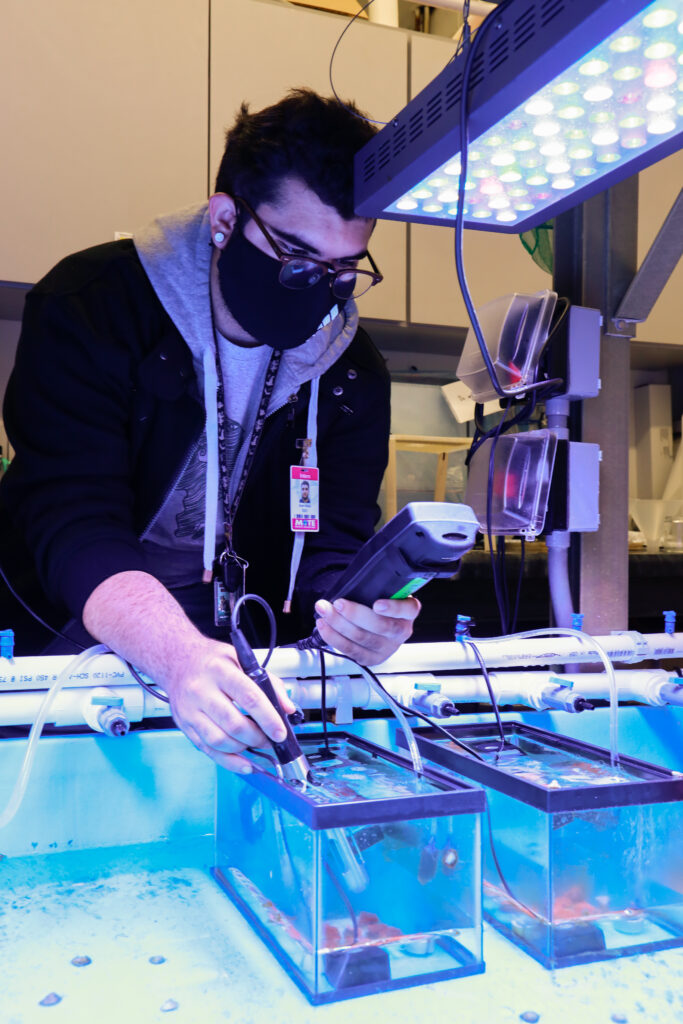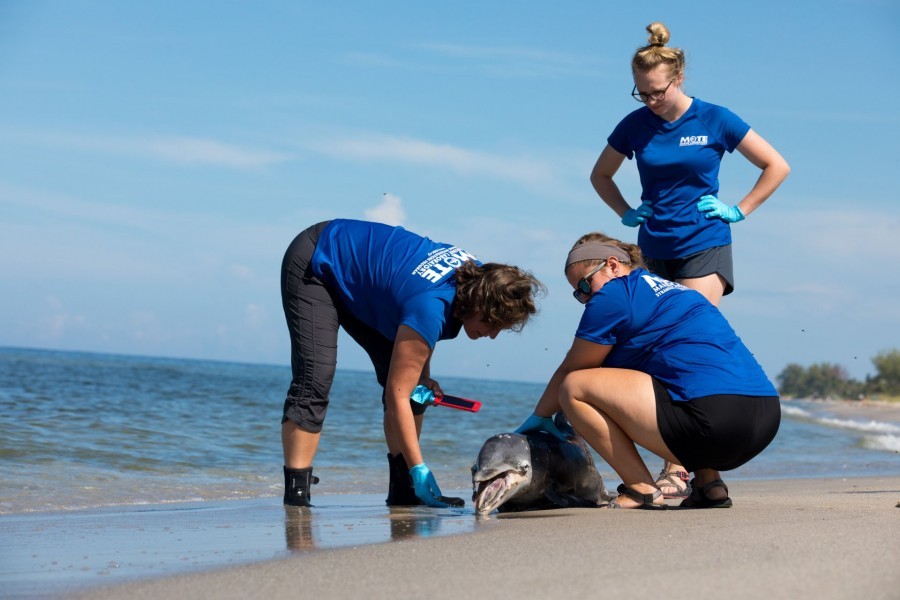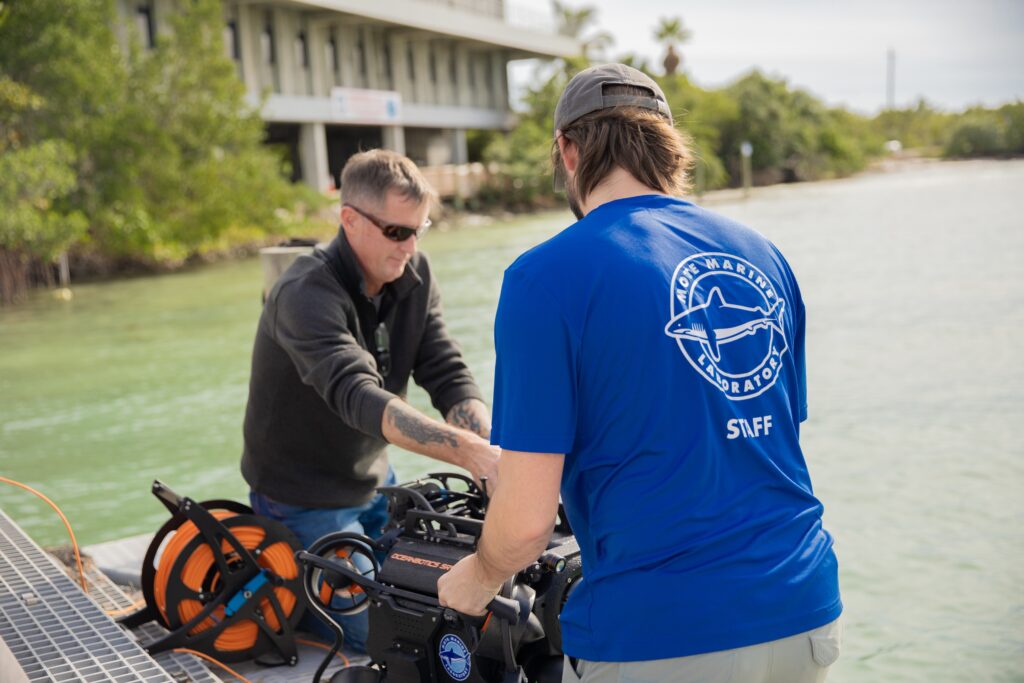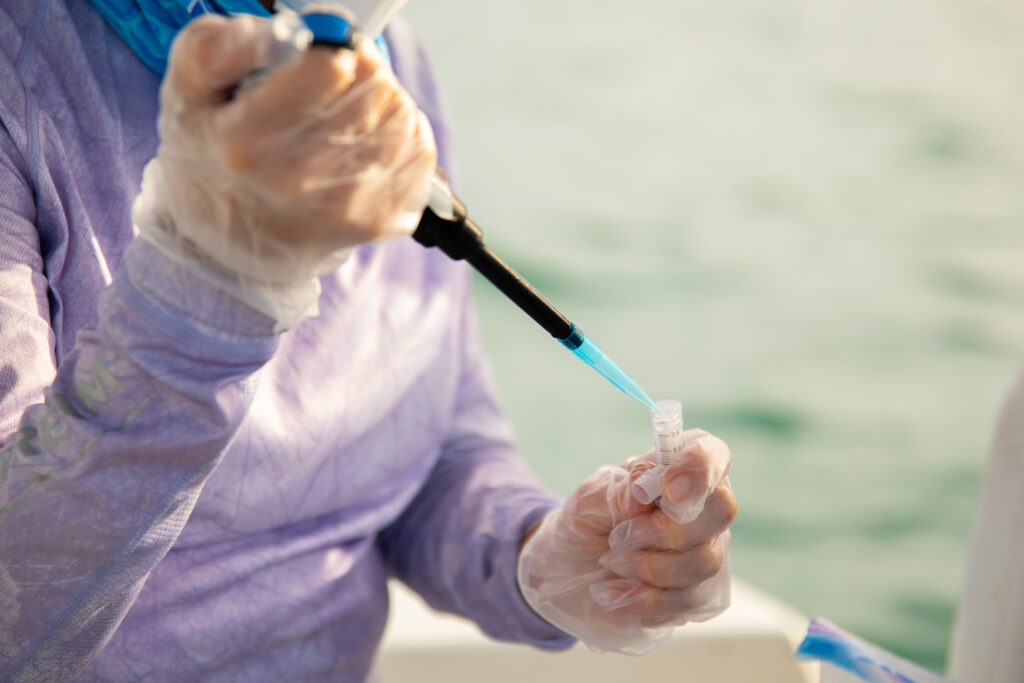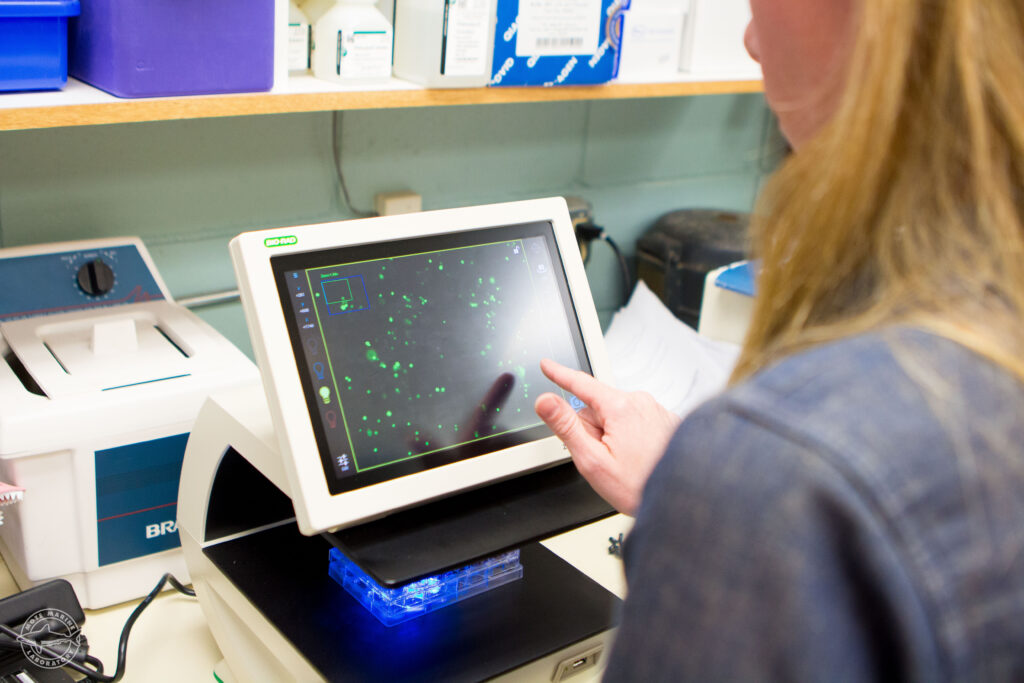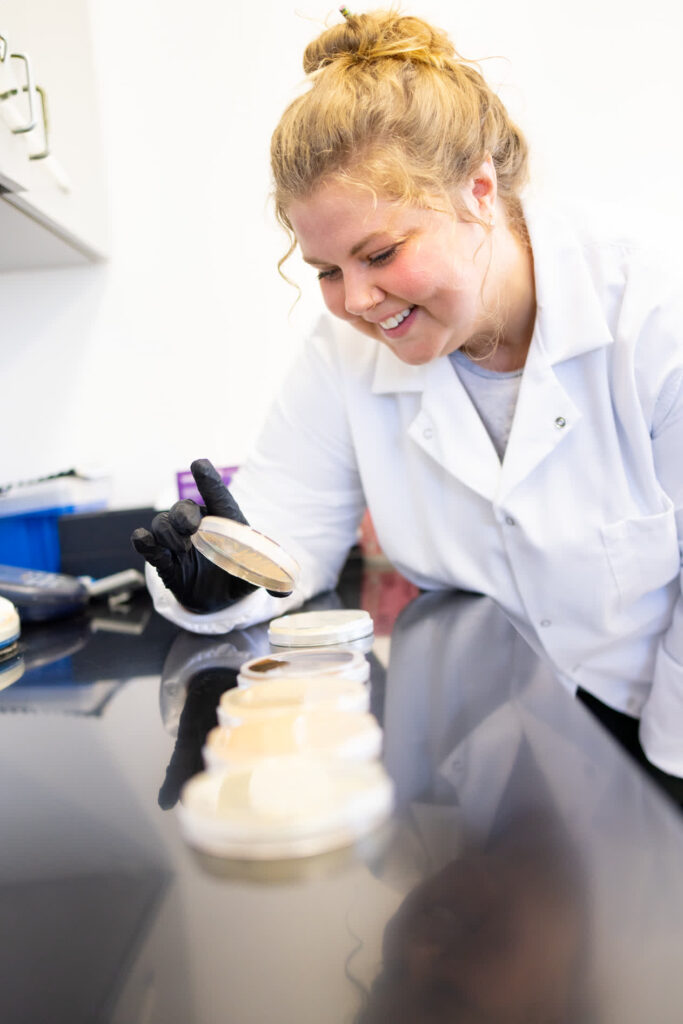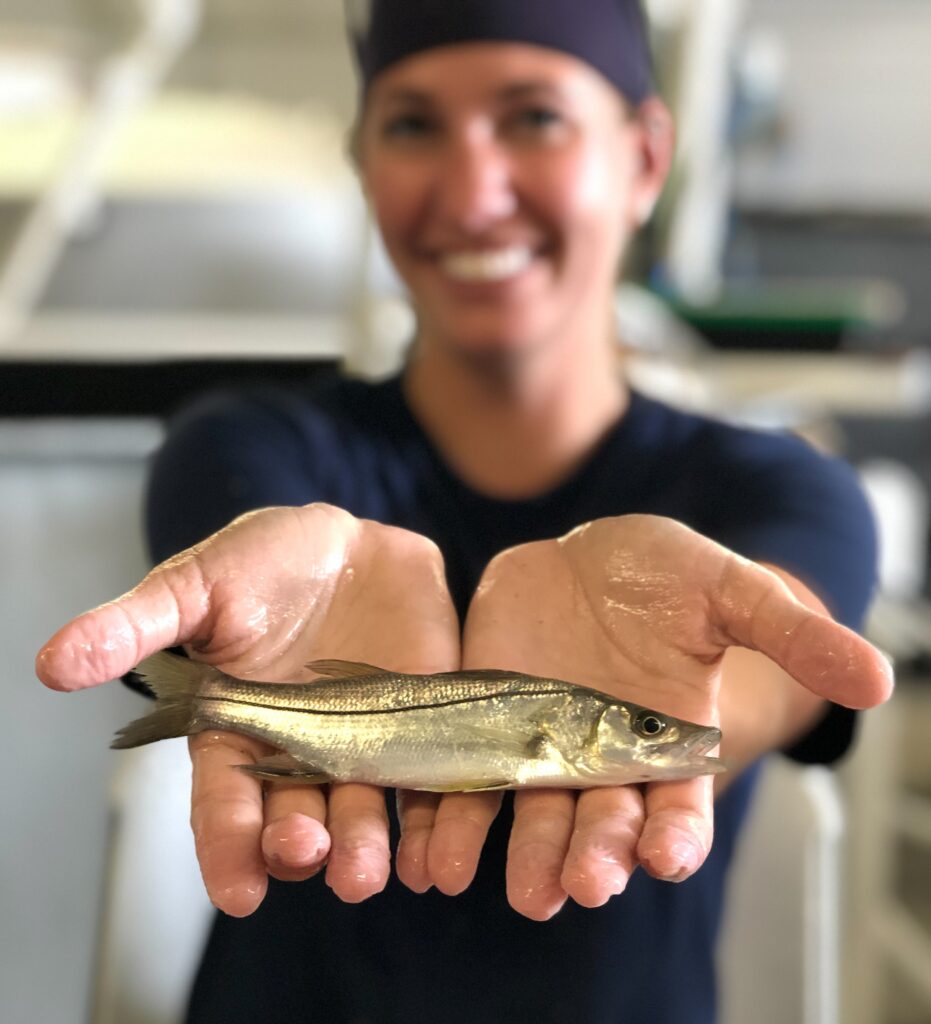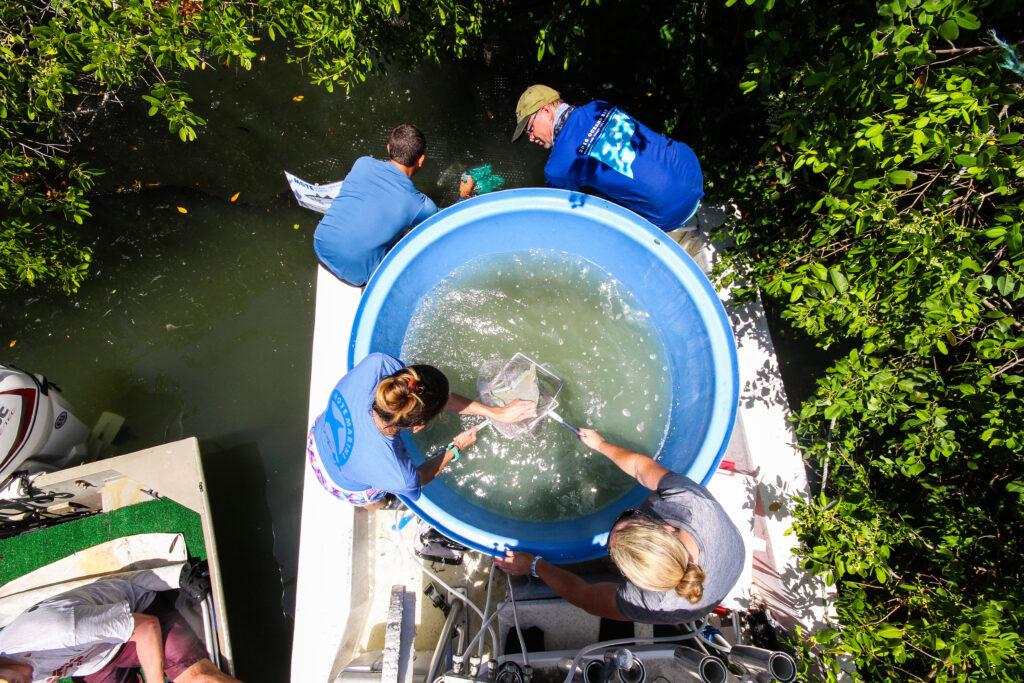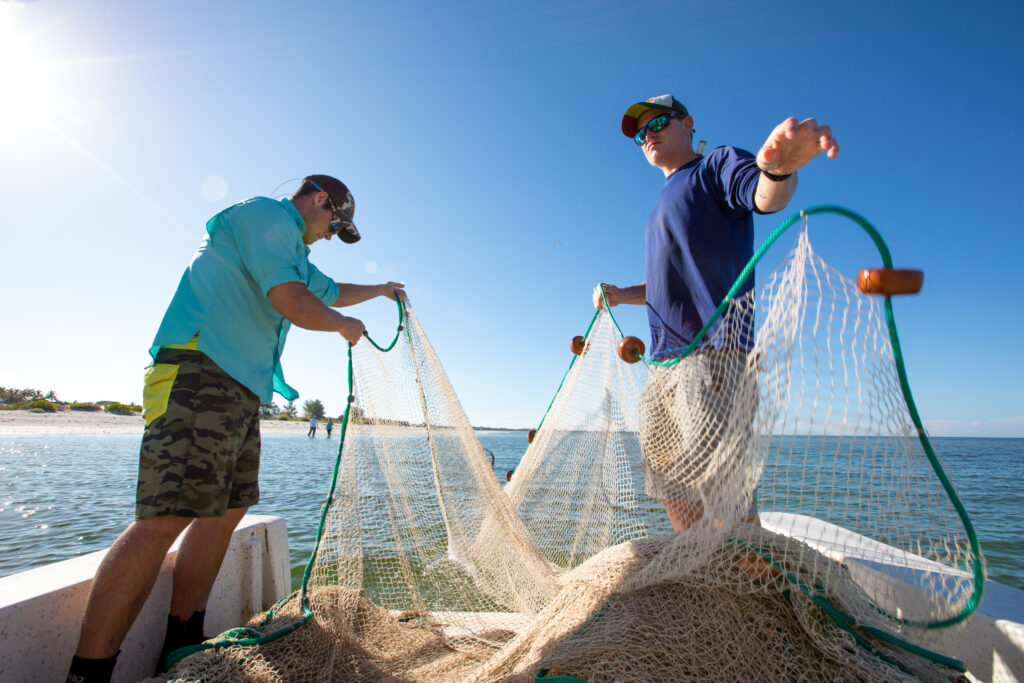Skip to content
You are using an outdated browser. Please upgrade your browser to improve your experience.
Mote Aquarium on City Island, Sarasota, is closed to visitors as we turn our full attention toward preparing to open Mote Science Education Aquarium (Mote SEA).
FAQ about Mote SEA
Today's Research for Tomorrow's Oceans
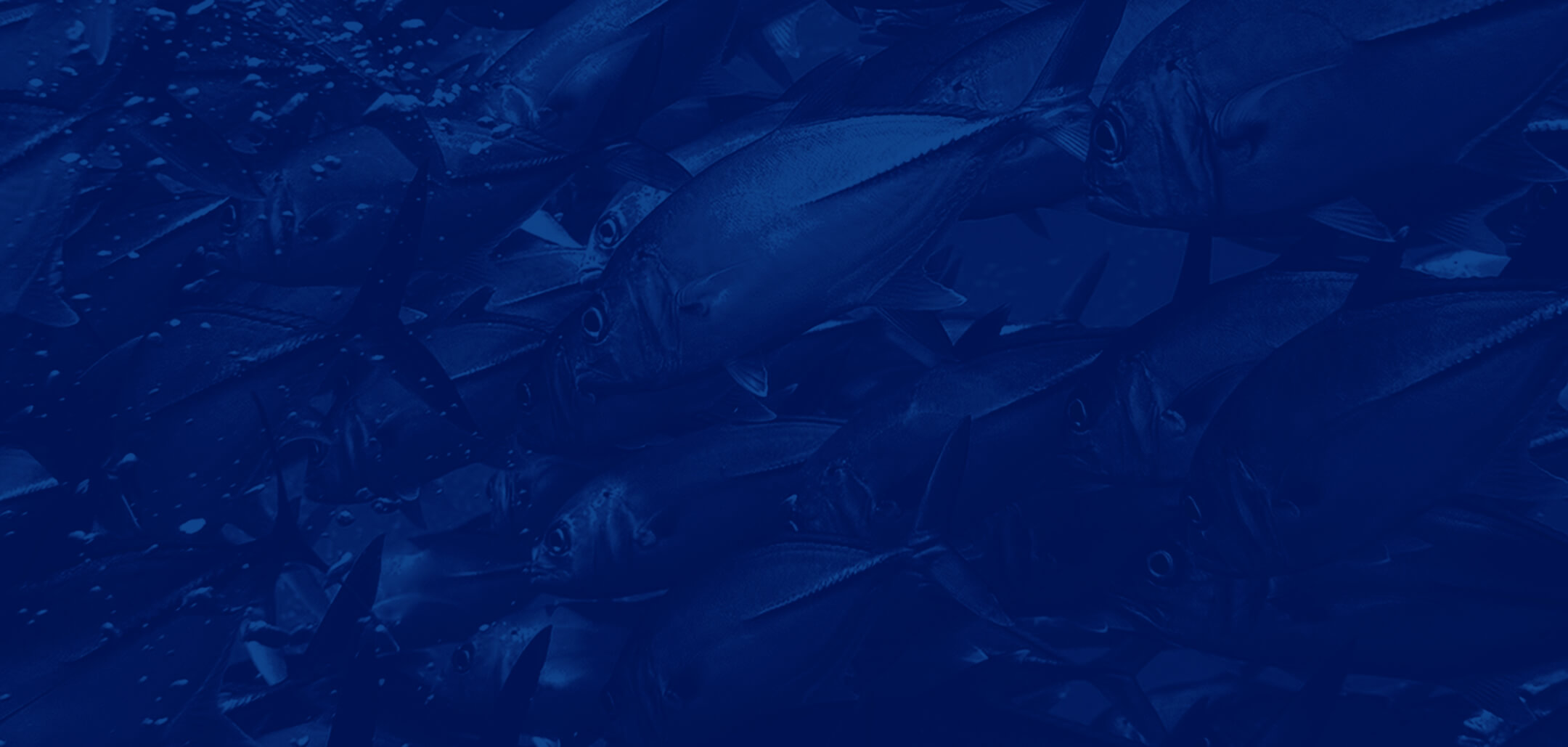
The Marine STEM Education research program is dedicated to fostering inclusivity and accessibility in STEM fields for diverse groups, advancing evidence-based practices to enhance STEM education, and empowering mentors to create safe, effective, and culturally responsive learning environments. By driving...
Seagrass is critically important to the ecology and economy of coastal ecosystems, serving vital functions for various fisheries, nursery habitats for a variety of keystone species, shoreline/sediment stabilization, absorbing nutrients, carbon storage, and coastal resilience. Unfortunately, seagrasses...
To report a stranded dolphin, whale, manatee or sea turtle (dead or alive) within coastal Southwest Florida, please call the Stranding Investigations Program's 24-hour hotline:
888-345-2335
Find other wildlife-friendly tips learn about the Sea Turtle Protection Zone in Sarasota Bay, Florida:
Protect...
Our Work
The mission of the Ocean Technology Program is to develop and utilize various forms of cutting-edge technology in conjunction with a wide range of interdisciplinary scientific goals to solve problems, streamline processes, and monitor the Eastern Gulf of Mexico’s water quality. We aim to...
[embed]https://youtu.be/nXdoYA7AzXk[/embed]
The Marine Biomedical Research Program focuses on basic and applied research using sharks, skates, and stingrays as laboratory animal models. Areas of interest include biochemistry, physiology, immunology, reproductive biology and embryonic development.
Major...
The Marine Microbiology Program studies microscopic living things (called microorganisms or microbes), their roles in the marine environment and their ability to produce natural products that can benefit marine animal and human health.
The oceans cover over 70% of the Earth’s surface and are home...
Our Work
[caption id="attachment_8137" align="alignright" width="275"] Mote staff prepared juvenile snook for release at Mote Aquaculture Research Park as part of a partnership with CCA Florida and FWC. Photo by Stephannie Kettle/Mote Marine Laboratory[/caption]
The Fisheries Ecology & Enhancement...
[embed]https://youtu.be/oiPV5PxSgnk[/embed]
The mission of the Marine & Freshwater Aquaculture Research Program is to develop innovative technologies and systems to support sustainable aquaculture to meet the growing global demand for seafood and to restore declining recreational fishery stocks....
The Fisheries Habitat Ecology and Acoustics program uses passive acoustics to study marine and estuarine soundscapes. Acoustic data provide insights into the timing, location and habitat features associated with species-specific sound production. We use long-term acoustic time series data to document...

